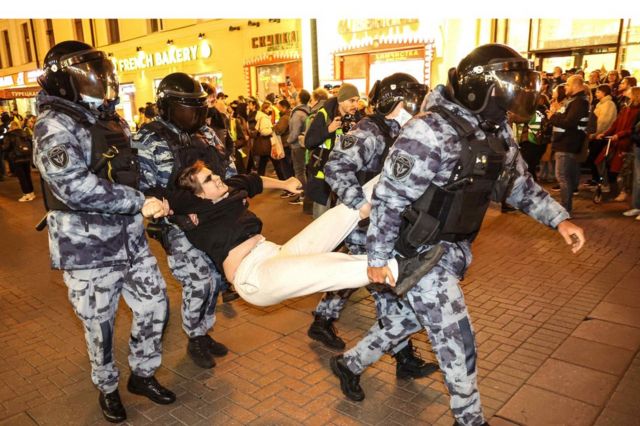Practicing attorney and lawyer with more than 12 years of practical experience in various branches of law
In this article we will talk about the sensational order CMU № 560, which everyone is so actively discussing and how it will affect those who, in order to obtain a deferment from the draft, need to formalize the care of a disabled person. How to get the act of care now, according to the new rules.
Who does not need to formalize care to receive a deferment
Resolution of the Cabinet of Ministers of Ukraine № 560 requires that the certificate of receipt of compensation for care or the act of establishing the fact of care were in the list of documents for deferment on paragraphs 9, 13, 14 of part 1 of article. 1 of Art. 23 of the Law of Ukraine “On Mobilization Preparation and Mobilization”.
I.e. this decree binds 3 types of deferrals from mobilization to the act of care:
- When you have a parent disabled of group 1, 2 and you are his only relative (this is item 13);
- when your parent needs permanent care and you take care of him/her (this is point 9);
- when you have a relative of the 2nd degree of kinship (grandmother, grandfather, grandchildren, brother, sister) disabled of the 1st, 2nd group and you take care of them, and they have no other relatives of the 1st degree of kinship.
In these cases, the CMU Resolution No. 560 in paragraph 61 refers to the fact that you need to obtain a care act.
But here I see a serious conflict in the legislation.
We have the Law of Ukraine “On mobilization preparation and mobilization”, according to which, when you have a parent disabled of group 1, 2 and you are his only relative (this is paragraph 13 of Art. 23), no registration of care is required.
And it is in this case that I believe that you do not need to prepare a certificate of compensation for care or an act of establishing the fact of care. It is in the case when you are the only relative of a parent of a disabled person of the 1st or 2nd group, he or she has no other children, or they are also subject to military service and he or she has the right to choose one of you, or they are disabled themselves or with certificates of the MSEC or LCC that they need constant care. They have no husband or wife, or they are disabled themselves or with an MSEC or LCC certificate of care. No living parents, or they are disabled themselves or with an MSEC or LCC certificate that they need care.
This is exactly the case when I believe that it is not necessary to formalize care.
When it comes to deferral under paragraph 13 of Article 23.
And my position is based on the fact that the Law has a higher force than the provisions of any CMU resolutions.
That a CMU resolution cannot change the provisions of the Law.
And if the provisions of the CMU resolution change the law, introduce new requirements for the formalization of care, which is not referenced in the law, accordingly, the provisions of the law apply.
I hope that this conflict will be resolved and the legislator will see and correct these contradictions.
Or they will be corrected in practice.
But if you are required to submit an act of resignation under paragraph 13 of Article 23 - then it is contrary to the law. And if for the reason of its absence you will be denied deferment - it is 100% necessary to go and appeal in court. And all this time quite legally refuse any mobilization orders.
But as for the other deferrals - under p. 9 of Art. 23 (care for a parent that needs constant care, when you may not be the only relative) or under p. 14 of Art. 23 (care for a relative of the 2nd degree of kinship, a disabled person of the 1st, 2nd group) - it is mandatory to formalize care. And you will have to get a care certificate or a certificate of compensation for care. The law itself requires it. And there are no contradictions with the resolution of the CMU № 560.
How to get the act of care for a disabled person under the new rules
Previously, there was no single form of the act of establishing the fact of your care for a disabled person. And the reference to this act was only in the Rules for traveling abroad, i.e. in the CMU Resolution No. 57.
It was quite possible to get this form for traveling abroad and then use it in the military enlistment office.
But some local authorities refused to issue the act with the reasoning that it was only for traveling abroad.
Now they will not have such a possibility of refusal.
If one reads the provisions of CMU Resolution No. 560 literally, it is unclear where to apply for these acts. As of the moment of recording this video, neither local authorities nor military enlistment offices give a clear answer to this question. They do not know yet. But I think in the near future this will change, there will be some practice and I will sanctify it.
And there aren't really that many options here. So I suggest we go step by step.
First, apply to the local authorities directly (village council, town council, city council, RDA of your city district) with an application for issuance of the act of establishing the fact of care in the form according to the annex to the resolution of the Cabinet of Ministers of Ukraine No. 560.
Sometimes these functions can be transferred to the USSPA. It is possible that in some cases these functions will be assigned to the CNAP.
Everything is done at the place of registration of the disabled person or at the place of his registration as a GPO.
And if somewhere they tell you that you should first go to the military enlistment office, and only then to us, then demand a written answer that they do not issue acts without the military enlistment office. And go to the military enlistment office.
In fact, it is not clear how the process will go - you will apply to the military enlistment office with an application for issuance of the act or with an application for deferment to the military enlistment office, and they will initiate the process of its issuance through the local authorities, or the local authorities will take the documents from you and coordinate everything with the TCC and SP.
But you do not have to get involved and get into these bureaucratic internal procedures.
It is important for you - you came to the local authorities to submit an application for issuance of a deed. If it is accepted - good, let them consider it and issue the act. If not - let them write a written answer that it is not to them, but to the TCC.
If they send you to TCC and SP for issuance of the act, I recommend to send an application for issuance of the act with all the list of documents attached to it by certified mail in advance.
You can also submit in parallel and application for deferment from mobilization, with a written, preferably notarized statement of your relative that he chose you, but so far without the act. And all this valuable with an inventory and courier delivery. It is possible to withhold the application for deferral, here you will have to see how the practice goes.
Then you are in the TCC to submit an application for issuance of the act and the application for deferral in person. And have with you originals and copies or, at your discretion, you can notarized copies of all attached documents.
And submit additionally, after the mail, these documents in person.
For what you need mail you ask - to fix the filing of documents and for your insurance in case you go there, your documents do not want to see, there will be some conflict situation and will have to go to court. That's what the mail is for.
But you will not be able to get a postponement by mail. After the post office you will still have to go there with the documents.
Let's assume a situation that you came to the local authorities with an application for a care act. They sent you to TCC and SP. You took a written reply. You came and submitted the application to TCC and SP.
Then, if a week or two passes and some procedures to inspect your place of residence and issue you a care certificate start, everything is fine.
But if not and TCC finds a hundred reasons why this process should not be allowed - for example, you have a sister, or dad has a wife, etc. - or worse, you just filed an application and nobody does anything on it and the issue does not move, then I recommend to make a lawyer's inquiry, and at what stage the consideration of the issue of issuing me a care act.
If that helps and the process is moving, good.
If not - then make some alternative option of registration of care. For example, get the act of establishing the fact of care to travel abroad, or make a notarized contract for life maintenance.
Apply for a deferral with this alternative care arrangement. And with all the history of correspondence already recorded by you in advance that you tried to apply to them for the issuance of the act in the form according to the annex to the CMU Decree № 560, but they evade it. First valuable with an inventory of attachments and courier delivery by mail, then in person.
And wait for the decision on it.
If the decision will be negative - sign and receive with the words “I do not agree” and go to appeal in court.
If they try to send you to medical examination - refuse with the reasoning “I have applied for deferment, according to the provisions of the resolution of the Cabinet of Ministers of Ukraine No. 560 I am not subject to medical examination”. But let me remind you that if you do not have an up-to-date form of military registration document, the question whether you need to go to the medical examination is very controversial. If everything is fine with the military registration document, you can safely not go to the medical examination.
If they try to hand you a summons to send you to the war, you refuse to sign it, demand to draw up an act of refusal to sign, where the reason for the refusal you indicate: “I have the right to deferment, I have submitted an application, TCC has notified about it”. After that you turn around, leave, you are not going to appear anywhere and go to appeal in court.
I very much hope that this process of issuing a resignation certificate under CMU Resolution No. 560 will somehow be normally regulated in practice.
But you need to be prepared for any turn of events. Both good and bad, and be prepared to prove your point of view in court.
Can I get a care act if there are other relatives or different residence registration
Many people have paid attention to the fact that in the form of the act of establishing the fact of the implementation of care according to the annex to the resolution of the CMU № 560 there is a reference to the absence or presence of other relatives.
There is also a reference to cohabitation.
And that in the list of documents for deferral, the resolution of the CMU No. 560 presupposes the submission of certificates of registration of you and the disabled person, and the submission of a statement of the disabled person that there are no other relatives.
Does this mean that now, if you have a brother or sister, or if the disabled person has other relatives, it is now impossible to apply for deferment and the act of care will be denied in any case.
No, it doesn't.
If there are other relatives - there is no need to hide it. Let them indicate their presence in the act, but insist that they indicate that you are taking care of the disabled person.
If you live in different places - provide certificates of residence registration, if required. But insist that the joint residence does not play a role in the implementation of care.




































